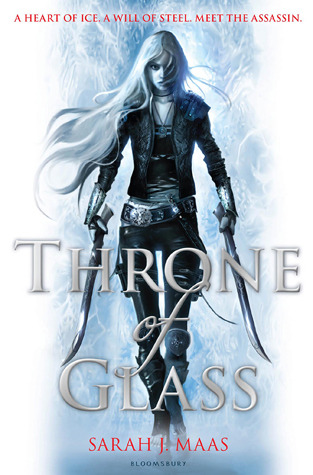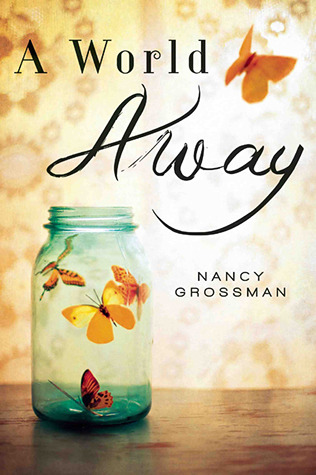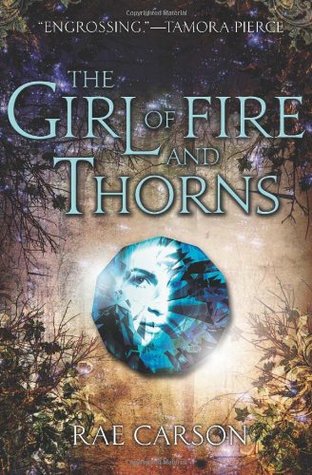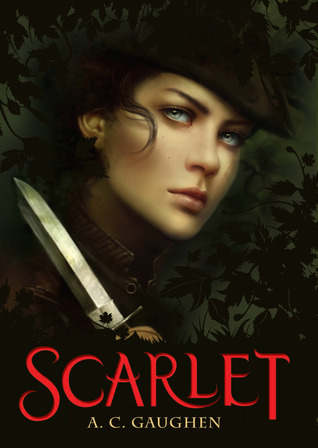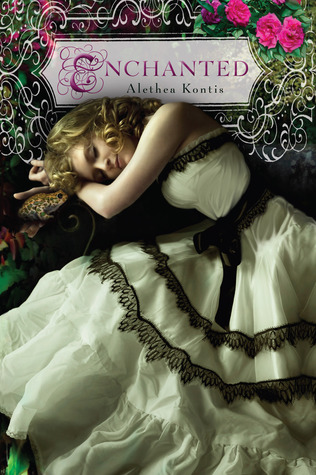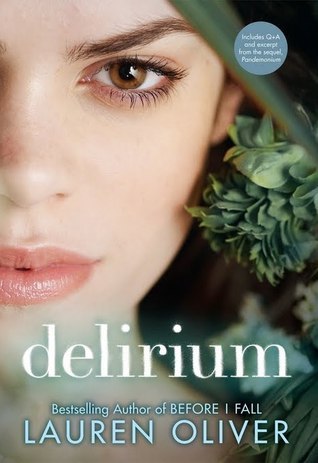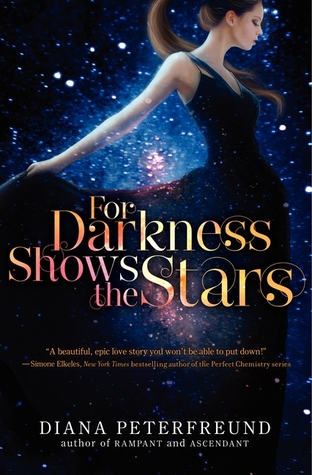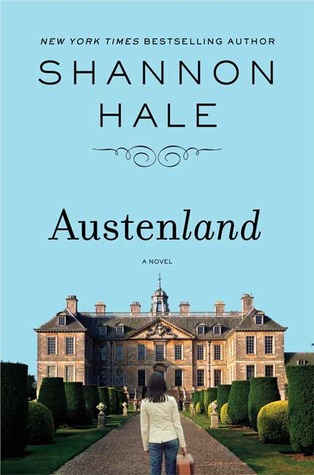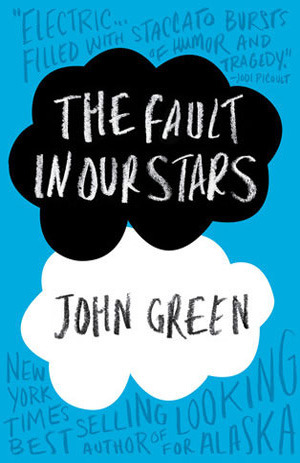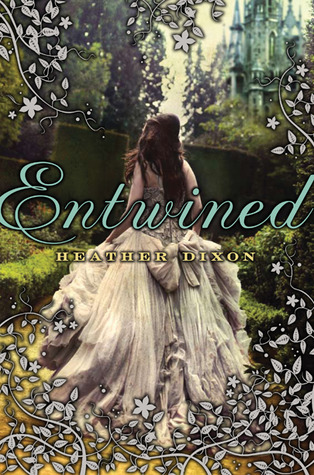August 2012 by Bloomsbury
406 pages--Goodreads
Meet Celaena Sardothien.
Beautiful. Deadly.
Destined for greatness.
In the dark, filthy salt mines of Endovier, an eighteen-year-old girl is serving a life sentence. She is a trained assassin, the best of her kind, but she made a fatal mistake: she got caught.
Young Captain Westfall offers her a deal: her freedom in return for one huge sacrifice. Celaena must represent the prince in a to-the-death tournament—fighting the most gifted thieves and assassins in the land. Live or die, Celaena will be free. Win or lose, she is about to discover her true destiny.
I would call Throne of Glass a solid meh, except that I care too much about it for it to just be a blah book. I wanted to like it. I still want to like it. So many people say the series is amazing and the covers are cool, and are assassins and political intrigue and arhgablargastarg!
I have a lot to say. I may get a bit ranty.
First, I see this book compared to The Girl of Fire and Thorns a lot. Stop comparing them. Right now. They are not the same in tone or plot or character or setting or style or anything. Just because two fantasy romance YAs with female protagonists came out at roughly the same time does not mean the two books are similar. Besides, Girl of Fire and Thrones is a much stronger and more enjoyable novel.
Second, the shifting POVs are a bit shaky, especially at the beginning of the novel. I think this is what rubbed me the wrong way initially, and it made me more critical as the book progressed. We spend nearly all our time in 3rd person limited, dipping into Celeana's thoughts. At some chapter breaks we change to 3rd person limited Chaol or Dorian. Fine. Not terribly clear at first, but fine. But randomly, in the middle of some chapters, without indication, and especially near the beginning of the novel, we switch POVs for a couple sentences or paragraphs. No reason is given for why we're hopping into Chaol's brain for a second. We don't know why it should matter that we're now getting Dorian's thoughts but only for these two sentences. Or we're following some super temporary omniscient narrator and seeing into multiple heads at a time. It's just clumsy and confusing and annoying.
Probably my biggest problem with the novel: I am so sick of love triangles. I can enjoy a good romantic subplot. I can even enjoy a good romantic foreplot. But these stupid, angsty triangles-are-cool-right-now, weak excuses for plots are driving me insane. If Celaena just had feelings for Chaol, that would be fine, though it would still be a pretty weak romance. But the Prince was just terrible. Spoiled, arrogant, entitled, and uninteresting. As a side character he would be annoying, but as a romantic interest I couldn't stand him. All the time spent mooning over the prince could have been spent on Nehemia, easily the most interesting character in the book . Rebel spy; witty, fighting princess from conquered lands? Why isn't more of the book about her? Granted, there are actually some good plot reasons for this, and it looks like she might get more screen time in later books. But I just wanted to leave the boys behind and have Celeana and Nehemia to go off monster-slaying and empire-overthrowing with occasional side trips for Celeana to pull a heist with Nox.
The villains, meanwhile, are too obvious to be very interesting. Spoiler paragraph. It is pretty clear from pretty early on that Pennington and Kaltain are up to no good. Maas isn't trying to be sneaky there. But the question who's butchering the champions is supposed to be the driving mystery of the whole book. I'm supposed to wonder. I'm supposed to be surprised. I'm supposed to have several wrong guesses before the true villain is finally revealed. Instead we get the obviously distasteful brute named after the most famous murderer in all of Western literature who's being manipulated by Pennington, who we already know is a bad guy. With what we get in the final chapter, I could see Pennington and the king becoming more interesting, but overall I wanted better antagonists.
And Celeana herself is unrealistic. Not that she's too skilled; I can buy that. Nor is she too vain; her need for others to recognize and applaud her skill fits her character. But she's an assassin--trained to live in the shadows, to be alert, to trust no one. And she was betrayed. AND she's spent the last year in the salt mine death trap. Yet she keeps falling asleep, in seconds, no problem, around people she doesn't fully trust, or continues to sleep soundly when they sneak into her room. I don't need full on just-off-the-streets Vin paranoia, but a little more caution and attentiveness from the supposed best assassin in the land would be nice. Yes, this sound nit-picky, but come on. She specifically makes her door hinge squeaky so people can't sneak into her room, then two scenes later the Prince sneaks in to watch her sleep (which was creepy by the way) without the door making noise or Celeana waking up, then two scenes after that the door is squeaky again and she wakes up when Chaol comes in to report another murder. I expect better from my assassins.
But in spite of all this, I do think I will try the first 50 pages or so of book 2. I have heard from multiple people that the series gets better, that book one is the weakest, that if I just stick it out I'll be satisfied. There is potential. The mystery of the Wyrdmarks, the fae realm, Celeana's past, more Nehemia, more assassination. Book two could be good. Or it could get bogged down by the stupid love triangle. I guess I'll see.
I have a lot to say. I may get a bit ranty.
First, I see this book compared to The Girl of Fire and Thorns a lot. Stop comparing them. Right now. They are not the same in tone or plot or character or setting or style or anything. Just because two fantasy romance YAs with female protagonists came out at roughly the same time does not mean the two books are similar. Besides, Girl of Fire and Thrones is a much stronger and more enjoyable novel.
Second, the shifting POVs are a bit shaky, especially at the beginning of the novel. I think this is what rubbed me the wrong way initially, and it made me more critical as the book progressed. We spend nearly all our time in 3rd person limited, dipping into Celeana's thoughts. At some chapter breaks we change to 3rd person limited Chaol or Dorian. Fine. Not terribly clear at first, but fine. But randomly, in the middle of some chapters, without indication, and especially near the beginning of the novel, we switch POVs for a couple sentences or paragraphs. No reason is given for why we're hopping into Chaol's brain for a second. We don't know why it should matter that we're now getting Dorian's thoughts but only for these two sentences. Or we're following some super temporary omniscient narrator and seeing into multiple heads at a time. It's just clumsy and confusing and annoying.
Probably my biggest problem with the novel: I am so sick of love triangles. I can enjoy a good romantic subplot. I can even enjoy a good romantic foreplot. But these stupid, angsty triangles-are-cool-right-now, weak excuses for plots are driving me insane. If Celaena just had feelings for Chaol, that would be fine, though it would still be a pretty weak romance. But the Prince was just terrible. Spoiled, arrogant, entitled, and uninteresting. As a side character he would be annoying, but as a romantic interest I couldn't stand him. All the time spent mooning over the prince could have been spent on Nehemia, easily the most interesting character in the book . Rebel spy; witty, fighting princess from conquered lands? Why isn't more of the book about her? Granted, there are actually some good plot reasons for this, and it looks like she might get more screen time in later books. But I just wanted to leave the boys behind and have Celeana and Nehemia to go off monster-slaying and empire-overthrowing with occasional side trips for Celeana to pull a heist with Nox.
The villains, meanwhile, are too obvious to be very interesting. Spoiler paragraph. It is pretty clear from pretty early on that Pennington and Kaltain are up to no good. Maas isn't trying to be sneaky there. But the question who's butchering the champions is supposed to be the driving mystery of the whole book. I'm supposed to wonder. I'm supposed to be surprised. I'm supposed to have several wrong guesses before the true villain is finally revealed. Instead we get the obviously distasteful brute named after the most famous murderer in all of Western literature who's being manipulated by Pennington, who we already know is a bad guy. With what we get in the final chapter, I could see Pennington and the king becoming more interesting, but overall I wanted better antagonists.
And Celeana herself is unrealistic. Not that she's too skilled; I can buy that. Nor is she too vain; her need for others to recognize and applaud her skill fits her character. But she's an assassin--trained to live in the shadows, to be alert, to trust no one. And she was betrayed. AND she's spent the last year in the salt mine death trap. Yet she keeps falling asleep, in seconds, no problem, around people she doesn't fully trust, or continues to sleep soundly when they sneak into her room. I don't need full on just-off-the-streets Vin paranoia, but a little more caution and attentiveness from the supposed best assassin in the land would be nice. Yes, this sound nit-picky, but come on. She specifically makes her door hinge squeaky so people can't sneak into her room, then two scenes later the Prince sneaks in to watch her sleep (which was creepy by the way) without the door making noise or Celeana waking up, then two scenes after that the door is squeaky again and she wakes up when Chaol comes in to report another murder. I expect better from my assassins.
But in spite of all this, I do think I will try the first 50 pages or so of book 2. I have heard from multiple people that the series gets better, that book one is the weakest, that if I just stick it out I'll be satisfied. There is potential. The mystery of the Wyrdmarks, the fae realm, Celeana's past, more Nehemia, more assassination. Book two could be good. Or it could get bogged down by the stupid love triangle. I guess I'll see.
